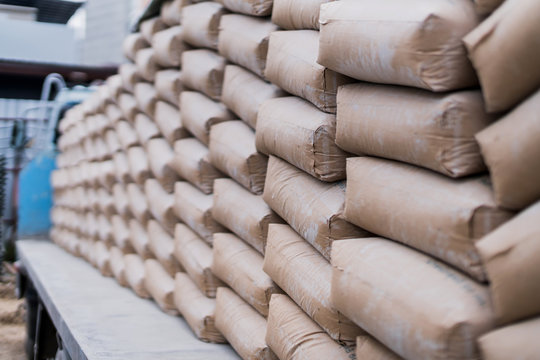
Developers reject N8,000 cement price
The deal struck between cement producers and the federal government has been turned down by developers in the built environment.
It was decided at the conference that cement prices would be lowered to between N7,000 and N8,000.
Dr. Aliyu Wamakko, the president of the Real Estate Developers Association of Nigeria, stated in an exclusive interview that the cut was detrimental to the economy.
"I don't think that's good for this country's economy because cement is the main product needed to construct any kind of building," he stated.
"What is the problem? Abdul Samad Rabiu, the Chief Executive Officer of BUA Cement, assured Nigerians that the price of cement will be dropped to N3,500 by January 1, 2024.
He claims that the majority of cement's ingredients are obtained locally.
Why should N8,000 be the new price? He continued, "Anything over N5,000 is not good for the economy and would not help to reduce the 28 million housing deficit."
Wamakko pointed out that in order to accomplish anything significant, the cost needs be lowered to N5,000.
"Most of the building projects in the country would be unfinished at N8,000," he continued. Every abandoned structure in the nation has to be reviewed, with a focus on those that will be vacant in 2023.
"I don't understand why cement should cost that much when 90% of it comes from local suppliers."
In a same spirit, Toye Eniola, the Executive Secretary of the Association of Housing Corporation in Nigeria, denounced the talks.
"When BUA promised us a slash from over N5,500 to N3,500 and now they are negotiating N8,000, what is fair in N7,000 to N8,000?" he asked. To what destination are we going?
"That is a negotiation for the wealthy. They are arguing that homes will not be available to the impoverished at that price. No impoverished person could buy it at such price, and the deficit would continue to grow.
"The best course of action is to return to the fundamentals; now is the moment to use locally produced building supplies. For example, we have interlocking bricks, which we need roughly 5 per cent of cement for this which would save us a lot of money.
"A lot of research has been done on alternative building materials that can be used in Nigeria by the Nigerian Building and Road Research Institute. For example, they have studied the use of bamboo as an alternative to iron rod."
Eniola stated that the nation needed to start using domestic building materials instead than importing ones that were determined by exchange rates.
Additionally, Sola Enitan, the CEO of Cromwell Professional Services International Limited, stated that the reduction was subpar.
"The manufacturers may believe they are saving people money, but in my opinion, it is all bullshit," he stated. "The reduction is still not it."
"If cement prices dropped from N5,000 to N8,000 in a month, I think the government would start to feel the pinch further, because the circle goes round.”
Later 2024 and 2025 would be quite difficult, he said, if individuals are unable to develop housing and rent increases occur.
In order to make the cement manufacturers feel the pinch, he continued, "Rents would go up and intervention areas of government would be to build all their bungalows without cement and use cement sparingly."
In the meantime, Jide Odusolu, CEO of Octo5 Holdings, questioned the earlier cement price reduction that BUA cement had promised.
"I would like to see who or where they supplied cement at N3,500 per bag—we never got it and we tried!" he remarked, referring to the oral promises made by BUA.
"Social housing that is financed by the government but not constructed should be advantageous to low-income earners."
"Reading the post-meeting report, it appears they blamed the cost of transportation, bad roads, and petrol prices," he continued. The expense of petrol is the one new component that, in my opinion, may be justified.
In order to create a system for comparing gas for local consumption in naira, the government should work with the Nigerian Gas Company and other gas producers.
"It is incomprehensible that a country that flares gas in 2024 still makes it prohibitively expensive for locally needed production. Second, we need to start making concrete instead of depending solely on bagged cement.
On Monday, cement manufacturers nationwide decided to charge a retail price of N7,000 to N8,000 for a 50 kg bag of cement, depending on the location.
According to a statement, "the cement manufacturers, however, asked the government to address the challenges of petrol shortage, import duty, smuggling, and road network."





